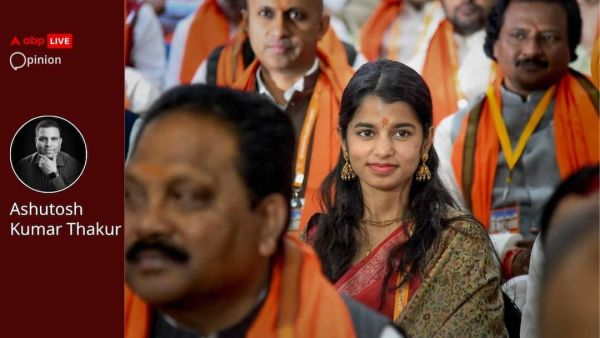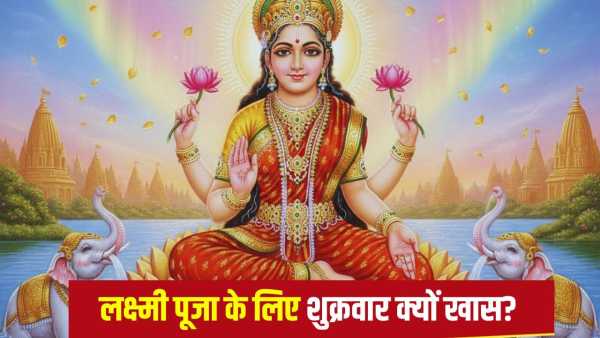
Sometimes, history waits quietly in the wings, only to sweep across a stage when least expected. That is what happened to Maithili Thakur in 2025. At just 25, she was invited by the central leadership of the BJP to contest the Bihar Assembly elections. The summons came with the weight of expectation: Prime Minister Narendra Modi and Home Minister Amit Shah personally endorsed her candidature.
For a girl who had sung for audiences from Madhubani to Milan, whose voice had earned international acclaim, this was a different stage altogether, a theatre of power, not applause.
Mixed Echoes From Mithila
The Mithila region responded with mixed emotions. Some celebrated, seeing in her an emblem of youthful promise and cultural pride. Others whispered scepticism:
Could a musician, who had spent her life in notes and scales, step into the turbulent waters of politics and still hold her art steady?
Was she a parachute candidate, unfamiliar with the local streets of Alinagar, yet asked to carry the weight of public trust?
Maithili answered these doubts with quiet resolve. She expressed her wish to contest from Benipatti, Madhubani, her home ground, but the party fielded her from Alinagar. The leadership believed her integrity, cultural rootedness, and unassuming strength would resonate with voters.
And they did.
She won by a margin of around 11,700 votes, defeating the experienced and soft-spoken Binod Mishra of the Mahagathbandhan, an opponent who, with rare grace, publicly wished her well after the verdict.
The Ground Beneath the Noise
When her candidature was announced, digital noise rose like dust in a sudden storm. Brahmin caste groups, anonymous handles, opinion-peddlers, many attempted to reduce her to inexperience, to a voice better suited for melody than mandate. Memes arrived before facts; ridicule travelled faster than her songs.
But Maithili did not answer the storm.
She simply walked through it.
In Alinagar’s lanes, she listened more than she spoke. Politics stopped feeling like a contest and began to resemble a shared heartbeat of a place waiting to be understood.
Under a tin-roofed verandah, an elderly widow told her that she had never imagined a girl ‘who sings like our daughters at festival nights’ would come seeking votes in her narrow lane. A group of schoolgirls whispered shyly before asking for a selfie, confessing they had ‘never spoken to a neta before.’
A cycle mechanic Usman near Biraul said, ‘Maithili ji, we all knew you through your songs. Now that you are an MLA, we will know you through your work as well.’
A farmer Dhanik Lal Yadav carrying pumpkin saplings paused to add, ‘We want nothing. Just listen to our people. That is enough.’
And she did.
After her victory, celebrations broke out in unexpected corners. In one hamlet, women performed a small sohar-like chorus,not for childbirth, but for the birth of possibility.
Her victory is striking not because she defeated opponents, but because she outlasted a narrative designed to erase her. She met trolls, caste arithmetic, and gendered doubts not with counter-rage, but with old-fashioned discipline: presence, patience, sincerity.
She refused to perform anger.
She refused to imitate politics as spectacle.
She remained recognisably herself.
And perhaps that is her real arrival, not in the Assembly, but in the quiet knowledge that authenticity, when carried long enough, becomes its own form of power.
Her Village Speaks: The Voices of Uren
Back in her ancestral village, Uren in Benipatti, the mood carried a different kind of electricity, one woven with memory, music, and familial pride. Her uncle, Rakesh Thakur, who had watched her early riyaaz sessions on fog-laden winter mornings, said with quiet fulfilment:
‘Our Tanu (Maithili) has not only carried forward music, but she has also now taken up the responsibility of society on her shoulders.’
He added that her victory was a moment of deep joy for their family, their extended relatives, the villagers, and everyone who had watched her grow since childhood. Rakesh Thakur also said he would soon meet Binod Mishra Jee of Alinagar, the Mahagathbandhan candidate whom she defeated, to personally thank him for the gracious message he sent for Maithili after the results, a gesture he described as ‘the act of a very large-hearted man,’ something rare in today’s political climate.
Her grandparents, Shobhasindh Thakur and Satyabhama Devi, sat on the verandah receiving wave after wave of visitors.
Neighbours recalled how, as a child, Maithili would sing during festivals, her voice rising above the hum of the village evenings.
Holding back tears, Satyabhama Devi said:‘My granddaughter’s voice first belonged to our home, family and our village; then to the world, and now, it belongs to Bihar as well.’
Shobhasindh Thakur, known lovingly as Bacha Babu, added with a laugh, then broke into a tender sohar:‘Hamar Maithili Saare Jag Se Nirali… (Our Maithili is unlike anyone else in the world)…’
The courtyard fell silent, listening to the man whose voice had shaped three generations.
Bacha Babu himself is an accomplished singer and Katha-Sankirtan scholar, a revered vocalist of the region. His disciplined riyaaz and narrative mastery passed on to Ramesh Thakur, and through him to Maithili, Gaurav, Ayachi, and Rishabh, a lineage of voice, devotion, and discipline.
In Uren, people often say: ‘The tradition of musical devotion lives in Bacha Babu’s house.’
When I spoke to Budhan Mandal, his face lit up with the pride of an entire village. He said,
‘When I saw Maithili on TV, it felt like the daughter of our village was standing before the world. Today it feels as if she has lifted the honour of all of us.’
Across Uren, elder family members and neighbours echoed the same feeling in their own ways.
Harsh Narayan Thakur told me, ‘Maithili’s success feels like a tribute to the hard work of our ancestors. It is their blessings we see today.’
With unmistakable pride in his voice, Sudhir Thakur said, ‘For a daughter of our village to reach the Bihar Assembly, this is a historic day for all of us.’
Standing at the edge of the gathering, taking everything in before he spoke, Amarkant Thakur said with quiet emotion, ‘For us, this victory is deeply personal. It feels as though an old blessing carried by our elders has finally found its destination. Happiness has entered every courtyard of Uren today.’
Overwhelmed and smiling, Kamlesh Thakur added, ‘This has strengthened the hopes of every poor and ordinary family. Maithili is showing us the road to our dreams.’
Soft-spoken and retired Central Govt. Officer Anand Mohan Choudhary shared, ‘We always knew she carried something extraordinary within her. But to see the whole of Bihar recognise it, this happiness cannot be measured. It feels as if our village has found a new identity.’
Ram Narayan Jha Said to me with rare joy ‘It feels as though the name of Uren has become a little brighter today.’
And from nearby Balhi Tola, Jogi Das, with folded hands, told me, ‘This has strengthened the hopes of every poor and ordinary family. Maithili is showing us the road to our dreams.’
That evening, Uren seemed transformed. Celebrations had erupted as though a festival had arrived unannounced. It did not feel like a political victory, but a homecoming threaded with pride, heritage, and affection, the triumph of a family, a village, a tradition.
Maithili’s rise turned Uren into a living celebration: where music, memory, and aspiration mingled freely; where every household stood a little taller; where every elder felt vindicated; and where every child believed, perhaps for the first time, that someone from their soil could rise before the world, and remain their own.
A Memory from the Stage: Prakash Jha Remembers
Among those who celebrated her was Prakash Jha, the well-known thespian associated with NSD Delhi. He recalled her performance at his Mailorang Repertory when she was still a school student: ‘She was a little girl, yet her voice had such power that the entire auditorium fell silent. Even then, we understood that this voice would travel far. But that it would travel all the way into politics, that, I did not imagine.’
He extended his warm wishes to her, emphasising that the discipline required in art and the discipline required in public life spring from the same source:
‘There is very little difference between riyaaz and public service. Both demand dedication. And Maithili has that dedication.’
Among literary voices, Dr. Kamal Mohan Chunnu, the noted Maithili writer and professor, reflected on her rise through the lens of cultural continuity:
‘Maithili’s journey is not just personal; it is a continuation of our region’s long tradition where music and literature shape one’s inner discipline. We witnessed her emergence as an artist; today, we are witnessing her emergence as a representative of the people. This bridge between art and public life is rare, and she carries it with remarkable grace.’
He added: ‘For the younger generation, she stands as a reminder that roots matter, and that talent anchored in sincerity can open doors anywhere.’
Music, Culture, and Politics
Her rise is not merely political; it is deeply cultural. Bihar, and Mithila particularly, has long cherished its musical traditions, festivals, and nuanced forms of expression. Maithili is a product of this heritage.
Trained in classical music from early childhood, she became a celebrated vocalist in Hindustani classical and folk forms that carry the region’s memory and vernacular wisdom.
Her political identity cannot be separated from her cultural one. She stands as a bridge between generations who sing with nostalgia and young voters seeking hope, between the emotive power of art and the structural pragmatism of politics.
Her addresses carry the cadence of the stage; her pauses hold the rhythm of performance. It is this musical sensibility, this instinct for harmony, that has allowed her to navigate the coarse terrain of Bihar politics with calm, almost poetic resilience.
A Victory Both Sudden and Inevitable
Election night brought vindication. Maithili Thakur won Alinagar, Darbhanga, becoming the youngest MLA in India. The cheers that accompanied the declaration were not just for a numerical victory, but for a victory of persistence, principle, and identity.
This win rewrites Bihar’s political imagination. It proves that while voters are pragmatic, they recognise integrity and cultural voice. And it affirms that an artist can indeed be a leader, that sensitivity, discipline, and empathy can translate into governance.
The Youngest MLA, The Strongest Symbol
As the youngest MLA, Maithili enters politics with both a mandate and the weight of possibility. Her presence stirs something in young women, artists, first-generation students, the ones who believed politics was an enclosed room.
Filmmaker-journalist Bhavesh Nandan Jha, who has followed her journey for years, said: ‘Maithili is one of the finest voices of the Maithili language.’
He spoke of how she revived folk songs for a generation that had forgotten its own roots, how her reach now extends across India and into diaspora communities.
‘She has taken Mithila to the world, with Malik of the Darbhanga Gharana, with Sahrda Sinha, with so many others.’
To him, her entry into politics marks a deeper shift: ‘She is self-made, confident, educated. At 25, a Gen-Z woman entering public life with such clarity is transformative.’
He added a gentle caution: ‘She will face attacks and accusations. Her answers must come through her work. Her silence must have purpose.’
His final wish is tender:‘She must continue her art,her singing, her painting. Many leaders keep their professions alive. She can too. Her greatest challenge will be balance.’
Then he paused and said softly: ‘But she will rise. She has carried her voice across continents; now she carries a people’s expectations. With the same discipline,she will reshape leadership itself.’
Where Art Meets Power
In Maithili Thakur’s public life, art and politics are not separate worlds but parallel disciplines. The patience required to master a raga becomes the patience needed to understand a constituency. The empathy that moves an audience becomes the empathy that binds a community.
In a state often defined by turbulence, she embodies a quieter possibility: that heritage and innovation can coexist, that youth and seriousness can align, that imagination can shape governance.
Her rise signals hope, especially for artists and cultural practitioners, proving that creativity and politics can be complementary forces, each enlarging the other.
The First Note of a Political Symphony
Maithili Thakur is no longer only the singer who captivated audiences worldwide. She is now a legislator who listens deeply, speaks sparingly, and carries her community’s stories in her heart.
This is only the beginning, but the direction is already clear: a new generation can lead with artistry, with culture, with courage.
Her voice, once carried by microphones and concert halls, now carries the mandate of the people.
And like all enduring performances, it promises to resonate long after the applause fades.
(Ashutosh Kumar Thakur writes regularly on society, literature, and the arts, reflecting on the shared histories and cultures of South Asia.)
-
Ayushman Card: How many times can you get free treatment in a year, what to do if the limit is reached?

-
Lakshmi Puja: Why is Friday considered auspicious for Lakshmi Sadhana? Know religious reasons

-
BLS Delayed September Jobs Report Shows Stronger Hiring, But Unemployment Rate Climbs To 4-Year High

-
Kerala Court Sends Man to 178 Years’ Rigorous Imprisonment for Raping Minor Daughter

-
Bobby Deol was out of 6 films overnight, know which actor’s luck shined
